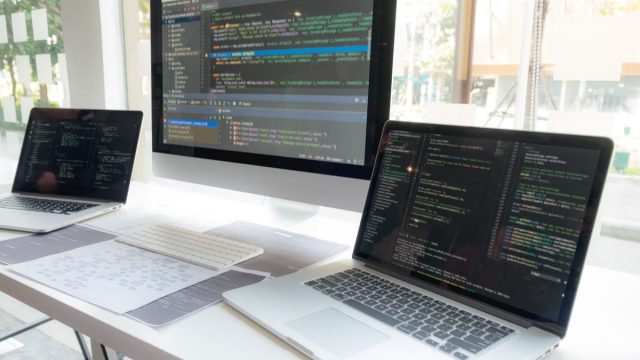Technology and software are seamlessly woven into almost everything in the modern world. From complex programs that control city-wide traffic networks to programmed microprocessors that control output temperature in water heaters, programming has become the superpower used to create value in society today.
There’s no way modern-day life would be possible without the great contribution of developers and programmers behind the scenes who use tools like a container registry by JFrog, Helm repositories, and much more. And there has never been a better time to learn how to code than today.
You’re probably thinking, “Isn’t tech and programming only possible for young people to learn?” Well, you would be right in making this assumption. After all, famous programmers and digital visionaries like Mark Zuckerberg, Daphne Koller, Danielle Feinberg, Bill Gates, and Jack Dorsey, all have one thing in common—they learned and started programming as kids.
However, it’s also important to note that many others have taken on this valuable skill into their 50s and beyond, and found new roles as programmers and developers. So, whether you’re 40, 50, or 60, it’s never too late to get into the tech space and learn to code as there has never been an age limit on learning programming. Read on and you’ll learn how you can start learning programming as an adult and maximize your chances of success.
Determine Why You Want to Learn Programming
Contents [show]
First, understand that there isn’t any “special” requirement to becoming a programmer. Anyone can learn to code as long as they’re willing to work hard and stay consistent. If you have no related background study, it’s best to start by defining why you want to learn to program. Consider the specific skills you’d want to gain and how much time and money you’re willing to commit and invest.
As mentioned, don’t buy the lie that programming is for the young. Once you commit yourself and start, the only thing that can stop you is you. Whether you’re looking to pursue a career in software development or learning programming is simply something that interests you, be sure to write down your goals.
Carve Out Time to Learn
Once you’ve worked out why you want to learn to program, the next step is to carve out some time in your daily schedule, where you can learn with minimum interruptions. If you can’t spare a few hours per day to commit to learning programming, then there isn’t a whole lot of point in taking on this challenge.
Keep in mind that learning programming is a marathon, not a sprint. While it might be possible to learn this skill and land a full-time developer role in a couple of months, it often takes a year or more for most adults to get where they want. You have to load up on programming classes and grind for months while keeping your full-time job, running your business, and taking care of your family. And this is why it’s important that you designate some coding time in your busy schedule.The best approach is to start slow and aim to progressively increase the time you invest in learning to code. 1-3 hours a few times a week would be a good start.
Start with Free/Less Costly Online Courses and Tutorials
It’s not uncommon for beginners to jump straight into immersive courses only for them to wish they’d have taken some time to prepare with more self-learning first before paying for those. With numerous tutorials and platforms where people can learn to code for free, you can choose a language and get a feel for computer programming before taking an intensive course.
The last thing you want is to spend a lot of time and money on career retraining after committing to a language or subject you didn’t find appealing and enjoyable. So, try out different free tutorials and platforms to see what programming languages interest you first before diving deeper into paid coding courses and programming boot camps
Surround Yourself with a Network
One of the things you’ll quickly realize when you start learning how to code is that you can’t navigate the programming world on your own. There are moments when you’ll need someone to help you get your head around a coding problem you’re having. And as with every other skill, there are times when you’ll need a good support network and community to push you through your comfort zone and explore new opportunities in your programming journey.
So, go ahead and join an online community and attend meetups to connect with others who are either beginners like yourself or already experienced in the field. Who knows, you could end up finding someone with whom you can develop a mentor relationship. Having a support network will help you stay focused and motivated even as you pursue your programming goals.
Focus on Your Unique Journey
Think about the last time you tried to compare your progress in something with others. Chances are you felt discouraged and even considered quitting. Understand that your programming journey is unique and it’s best not to worry about other people’s progress.
Always remember that you’re not in a competition. Plus, everyone learns things at their own pace. So, focus on your unique strengths and goals, not how you stack up with your peers who’re doing the same thing you are.
Projects are the Key to Success
Finally, you want to make sure you’re putting your new programming skills to the test by building things on your own. All those video tutorials, free coding courses, and coding boot camps are supposed to get you ready to create your own work of art. Don’t just stop at the theoretical knowledge you gain. The more practice you do, the better you become. So, take the time to brainstorm project ideas and start working on projects that can add to your portfolio.


